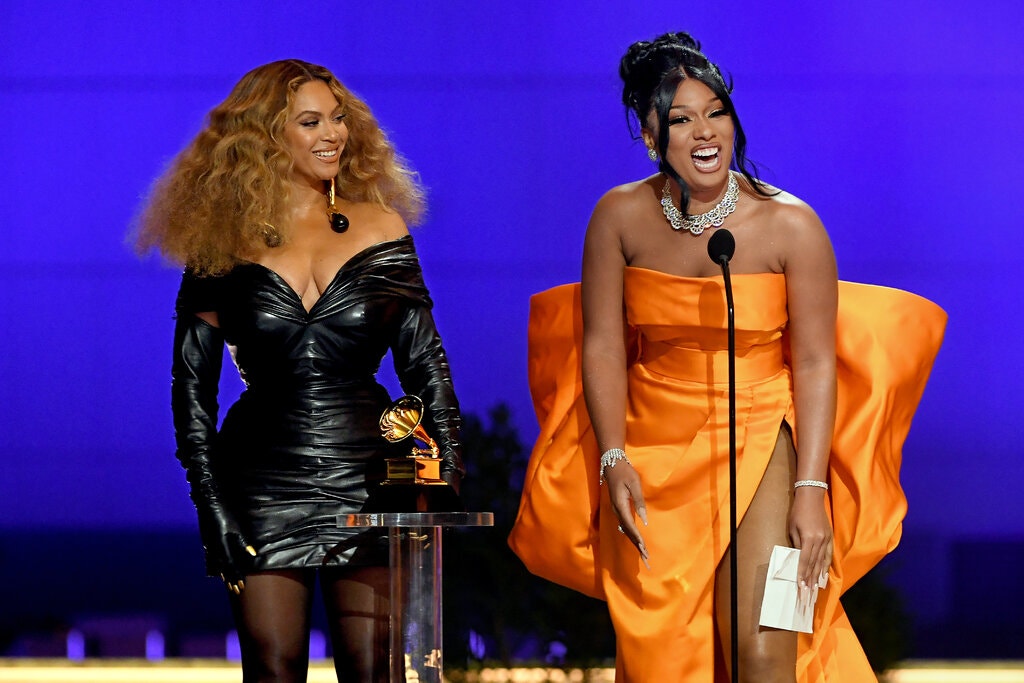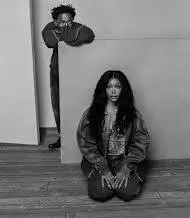By Anton Dedvukaj
The annual Grammy Awards, frequently heralded as “music’s biggest night,” finally aired on Sunday, March 14, after much delay, postponement, and anticipation. The award ceremony was originally scheduled for January 31, but it was pushed back due to concerns regarding the ongoing COVID-19 pandemic.
The ceremony was hosted by The Daily Show’s Trevor Noah, and was done largely outside in a tent in Los Angeles, right outside the Staples Center, where the ceremony is usually held. All of the attendees wore masks and followed COVID-19 restrictions and social distancing guidelines.
The ceremony was opened by Harry Styles, who performed his hit song “Watermelon Sugar,” followed by Billie Eilish and FINNEAS, who performed the song from what would go on to win Record of the Year, “everything i wanted.” HAIM and the Black Pumas followed with performances of their own.
The next performance came from rappers DaBaby and Roddy Ricch, who performed their hit song “ROCKSTAR” with Anthony Hamilton. The performance came with a new, politically charged verse from DaBaby. This was followed by a performance from Bad Bunny and Jhay Cortez, and then a performance from Dua Lipa, which also featured DaBaby.
Silk Sonic, the supergroup composed of Bruno Mars and Anderson. Paak debuted their new single “Leave the Door Open” at the show as well. Taylor Swift followed with a medley of three songs, which included two from her Album of the Year winner folklore. An In Memoriam segment, which came with tribute performances from Silk Sonic, Lionel Richie, Brandi Carlile, Brittany Howard, and Chris Martin, followed. Tributes to Kenny Rogers, Little Richard, John Prine, and Gerry Marsden were highlighted.
A country segment would also be performed, with Mickey Guyton, Miranda Lambert, and Maren Morris performing, with the latter receiving backing from John Mayer. A trio of rap performances followed. Cardi B and Best New Artist winner Megan Thee Stallion performed a medley of their current hits, which included their controversial smash hit “WAP”. Post Malone performed his song “Hollywood’s Bleeding”, and Lil Baby came in with a very politically charged performance of his Black Lives Matter anthem and protest song, “The Bigger Picture”. The final three performances of the night came from Doja Cat, BTS, and Roddy Ricch.
A few new things were added to this year’s show. For one thing, many of those who presented awards were the owners of smaller venues across the country, as small businesses and small music venues were hit very hard by the pandemic. This was seen as a way for the Grammys to honor the owners of these venues who had been affected.
For another thing, short documentaries for all of the Record of the Year nominees, being Dua Lipa, Billie Eilish, Post Malone, the Black Pumas, DaBaby, Doja Cat, Beyoncé, and Megan Thee Stallion, were aired. These would often provide background information on the nominees and their journey to get on the Grammy stage, as all but Beyoncé performed as well.
Beyoncé did, however, break the record for the most Grammys won by a woman, or by any singers, be they male or female, with 28. Taylor Swift also made Grammys history, becoming the first woman to win Album of the Year three times. In addition to “folklore”, she also won for “1989” in 2016 and for “Fearless” in 2010.
In the Big Four categories, in addition to Taylor Swift, Billie Eilish, and Megan Thee Stallion’s wins, H.E.R. won Song of the Year for “I Can’t Breathe”.
Overall, despite the impending questions on how COVID-19 would be handled, the Grammys still put on their usual big show with the usual big-name performances. I would argue, with the outdoor setting, as well as the fact that the performances were performed inside other locations, be they the next building over or on another continent, the Grammys were able to try to adhere to COVID-19 restrictions as best as they could. Even in the face of a pandemic, the event commonly considered to be “music’s biggest night” was able to put on a big show.






Be First to Comment